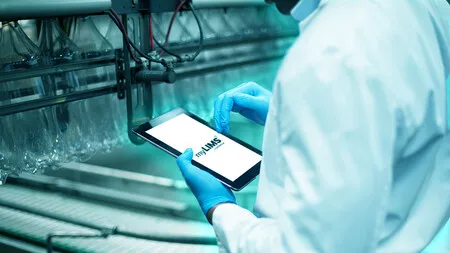September 8, 2025
ISO/IEC 17025 and the Role of Inmetro in Laboratory Accreditation
Table of Content

The ISO/IEC 17025 Standard is an international standard that establishes the general requirements for the technical competence of testing and calibration laboratories. This standard is crucial to ensure the reliability and accuracy of the results produced by these laboratories, directly impacting the quality and safety of products and services.
In this article, we will explore various aspects related to ISO/IEC 17025, including the role of Brazil’s National Institute of Metrology, Quality and Technology (Inmetro) and its specific body, the General Coordination of Accreditation (Cgcre).
What is ISO/IEC 17025?
ISO/IEC 17025 is an international standard that sets out the general requirements for the technical competence of testing and calibration laboratories. Its goal is to ensure that these laboratories operate in a consistent manner, producing reliable and internationally accepted results.
What is Inmetro?
Inmetro, or National Institute of Metrology, Quality and Technology, is a Brazilian federal agency linked to the Ministry of Economy. Its mission is to strengthen the competitiveness of the Brazilian economy, ensuring the reliability of measurements and the quality of products.
What is Inmetro's Cgcre?
Cgcre, the General Coordination of Accreditation, is a unit of Inmetro responsible for coordinating accreditation activities in Brazil. Accreditation is the formal recognition of a laboratory's technical competence to carry out specific activities in accordance with ISO/IEC 17025.
What is accreditation?
Accreditation is a process by which an authorized body, such as Cgcre, formally evaluates and recognizes the technical competence of a laboratory to perform specific tests or calibrations. This recognition is based on the requirements set forth by ISO/IEC 17025.
How to obtain the Certificate of Recognition of Technical Competence:
Obtaining the Certificate of Recognition of Technical Competence involves the submission of the laboratory to the state Metrological Networks, following the criteria established by ISO/IEC 17025. This process usually includes demonstrating technical competence, implementing a quality management system, and participating in proficiency testing.
How to define the scope of laboratory activities:
Defining the scope of the laboratory's activities is a crucial step in the accreditation process. This involves clearly identifying the specific areas of testing or calibration in which the laboratory seeks accreditation. The scope should be precise and comprehensive, reflecting the actual competencies of the laboratory.
How the accreditation process of laboratories at Cgcre/Inmetro takes place:
The accreditation process at Cgcre involves several steps, including the initial application, documentary evaluation, on-site audits, technical evaluation, and finally the granting of accreditation. During this process, the laboratory is evaluated against the requirements of ISO/IEC 17025, ensuring that it meets international standards of technical competence.
What is the difference between recognition of technical competence by the Metrological Network and accreditation of laboratories by INMETRO's CGCRE?
The recognition of technical competence by the state Metrological Networks is an initial step that may be necessary for accreditation. However, Inmetro's accreditation by CGCRE is a formal and international recognition of the laboratory's technical competence, based on the requirements of ISO/IEC 17025. While recognition by the networks is regional, Cgcre's accreditation is national and often internationally recognized.
Can a laboratory be accredited by INMETRO's CGCRE and Recognized by the Network at the same time by ISO/IEC 17025?
Yes, a laboratory can seek both accreditation by Inmetro's CGCRE and recognition by the Metrology Network at the same time. However, it is important to ensure that the laboratory meets the specific requirements of each process. Accreditation by CGCRE is a formal recognition that meets international standards, while recognition by the network can be more regional and specific.
Conclusion
ISO/IEC 17025 plays a crucial role in ensuring the technical competence of testing and calibration laboratories. Inmetro, through Cgcre, plays a key role in the accreditation process, ensuring that laboratories in Brazil meet international standards. Understanding the processes of accreditation and recognition of technical competence is essential to ensure the reliability of the results and promote the quality of the services and products offered by these laboratories.
Best-in-class LIMS
Built for your success
See what makes Confience different. Speak with a member of our team.
Schedule a Demo




.webp)

